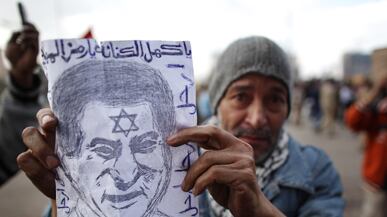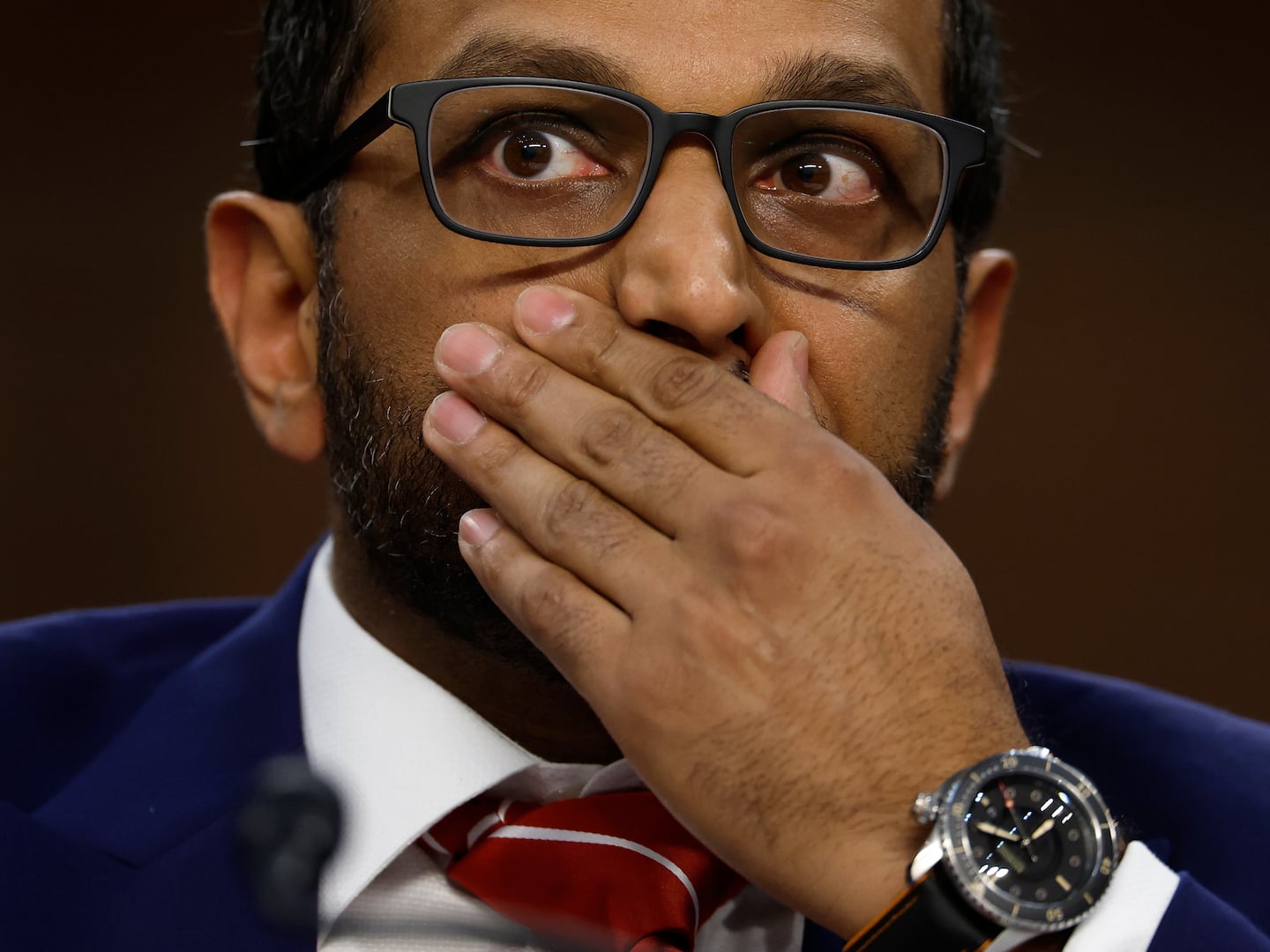The possible downfall of the Mubarak regime is being watched closely in neighboring Israel. Dan Ephron in Tel Aviv outlines the four main areas of concern. Plus, full coverage of the Egypt protests.
The possible end of the Mubarak era in Egypt poses serious worries for Israel but, perhaps surprisingly, a renewal of tensions on the border between the two countries is not at the top of the list. Israel fought four all-out wars with its neighbors before it signed a peace agreement with Egypt in 1979, and has fought none since then.
Photos: Egypt Protests

Yet most analysts and former officials believe whoever ends up ruling in Cairo—even the Muslim Brotherhood—will be reluctant to antagonize Israel or other Western countries. “They will have to focus on internal matters for the first two or three years,” says Giora Eiland, a retired general and Israel’s former national security adviser. “They will need American aid and foreign investment. If they take control, they’re not going to rush into war.”
Still, the relationship is sure to change and Israelis have plenty of other concerns. Here are the top four:
Isolation: Not since the 1970s has Israel felt so alone. Its attack on an aid ship headed for Gaza last year cost Israel its alliance with Turkey, which included joint military maneuvers and intelligence sharing. Jordan, the second country to make peace with Israel after Egypt, has meanwhile snubbed Prime Minister Benjamin Netanyahu for not being more accommodating on the Palestinian issue. Even the relationship between the U.S. and Israel has become increasingly chilled.
Not since the 1970s has Israel felt so alone.
The potential for losing Mubarak, who kept relations with Israel steady, feels to some Israelis like the 1979 overthrow of the Iranian Shah, whose regime had close ties with the Jewish state. “It was a big trauma,” says Uri Lubrani, who served as Israel’s representative in Iran in the 1970s. “It forced us to find alternatives to some of Israel’s basic needs.”
Leakage: Egypt shares a border not only with Israel but with the Gaza Strip, ruled by the Islamic group Hamas, a Palestinian offshoot of the Muslim Brotherhood. Already, guns and rocket launchers flow from Egypt to Hamas under the border through a network of tunnels dug by Palestinians. Mubarak’s regime has occasionally tried to disrupt the supply, but not very effectively.
Israelis worry that a government headed by the Muslim Brotherhood would allow the flow of more sophisticated weapons. “This would make Hamas much stronger and more difficult to deal with,” says Eiland, the former national security adviser. Eventually, an emboldened Hamas might try to overthrow the Palestinian Authority in the West Bank, headed by the PLO’s Mahmoud Abbas, he says. And, with an Islamic group stalking its western border, Jordan would also be vulnerable. “I’m not saying this is the most probable scenario,” Eiland says. “But it’s one we have to take into account.”
Spending: The global financial crisis has largely bypassed Israel, whose economy grew by 4 percent last year. With violence down to almost zero in the West Bank, Israel is more prosperous than it’s been in decades. But the uncertainty in Egypt is already being felt. The Tel Aviv Stock Exchange dropped by several percentage points in recent days and the shekel has grown weaker against the dollar.
Even if Egypt stabilizes, analysts believe the Israeli military will have to retrain and re-equip itself for a range of new scenarios—and that means more defense spending. In the decades since the peace agreement with Egypt was signed, Israel cut its defense budget from more than 20 percent of GDP to less than 10 percent, according to Shmuel Even, an expert on military spending at the Institute for National Security Studies at Tel Aviv University. Though no one expects spending to revert to the 1970s level, the trend is now likely to track upward.
Deadlock: Though talks with the Palestinians are already in a deep freeze, a rollback of the Israeli-Egypt peace accord would make an agreement on the Palestinian front even more remote. Successive Israeli leaders, including Netanyahu, have accepted the idea that land must be ceded to the Palestinians in exchange for peace. The events in Egypt have emboldened the hardliners, who have long maintained that peace agreements with the Arabs are generally worthless. “How good it is, in retrospect, that [former Israeli Prime Minister Ehud] Olmert did not give up control of Judea and Samaria [the West Bank] and did not partition Jerusalem,” wrote one those skeptics, political scientist Hillel Frisch, in the newspaper Yedioth Ahronoth on Monday. “At least the Iranians, Egypt…Hezbollah and Hamas will not be able to fight against us at close range.”
Dan Ephron has been Newsweek’s Jerusalem bureau chief since January, 2010. Previously, he served as a national security correspondent and deputy bureau chief for the magazine in Washington. His stories have also appeared in the Boston Globe, The New Republic and Esquire.






